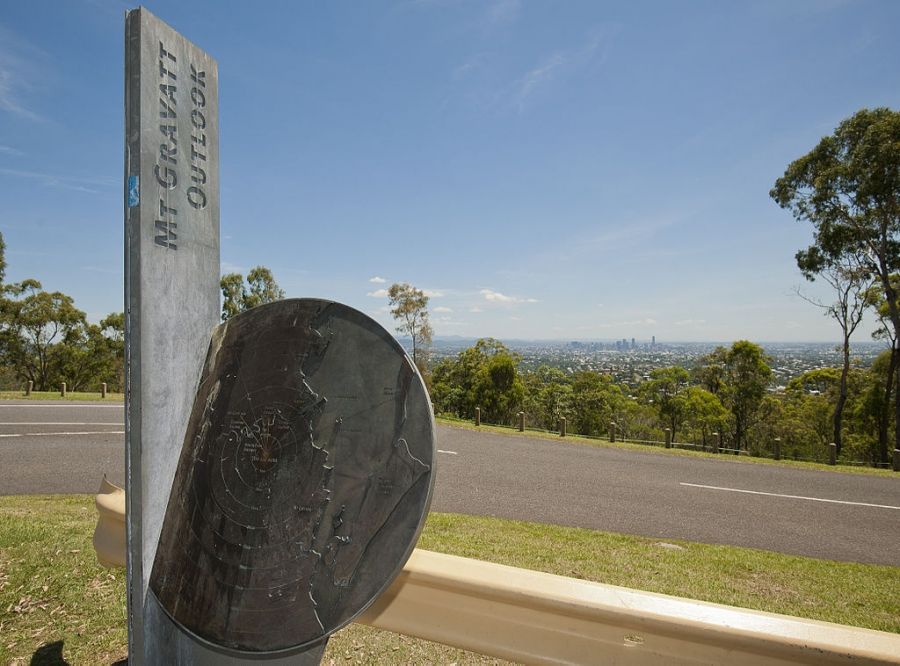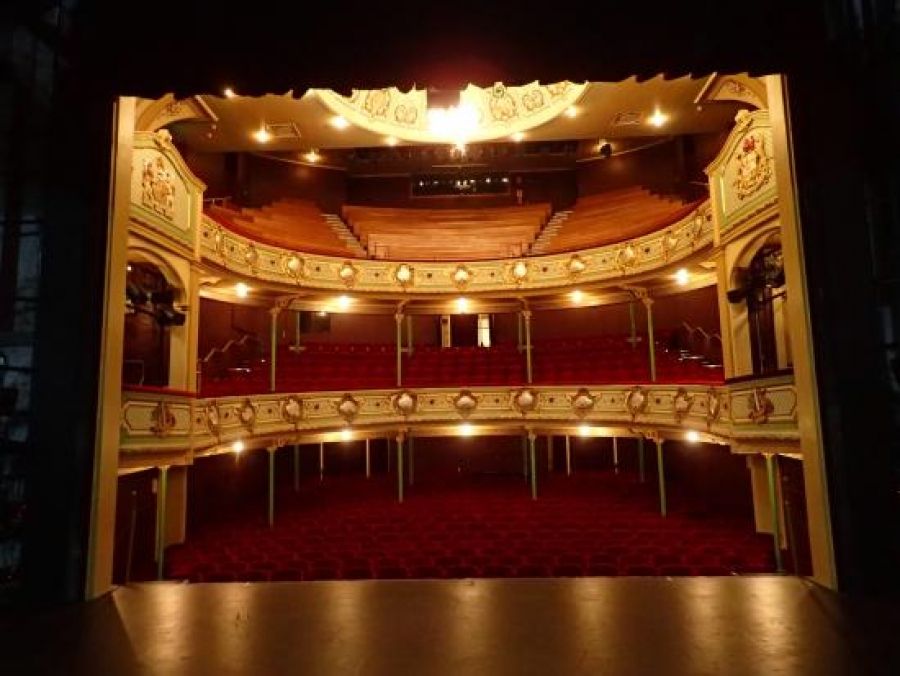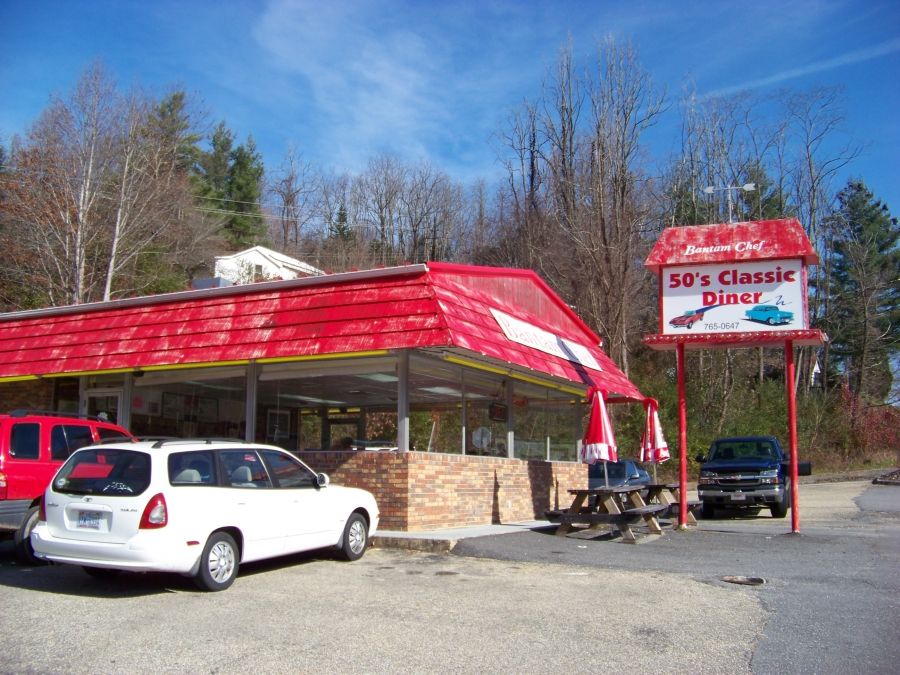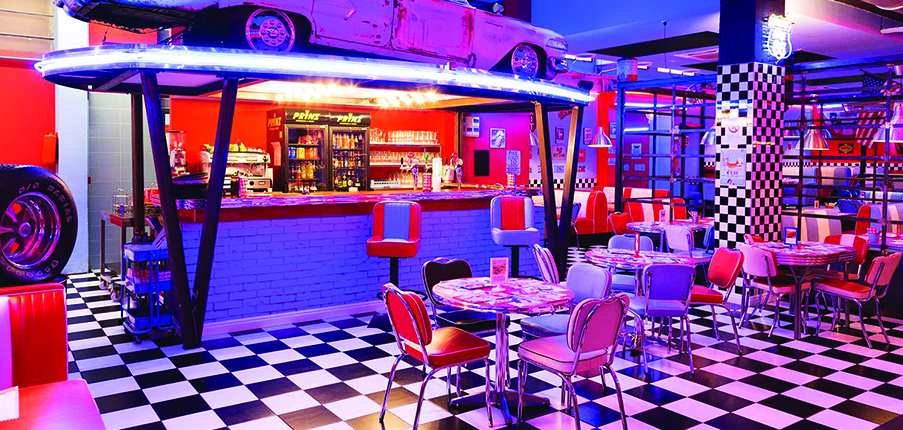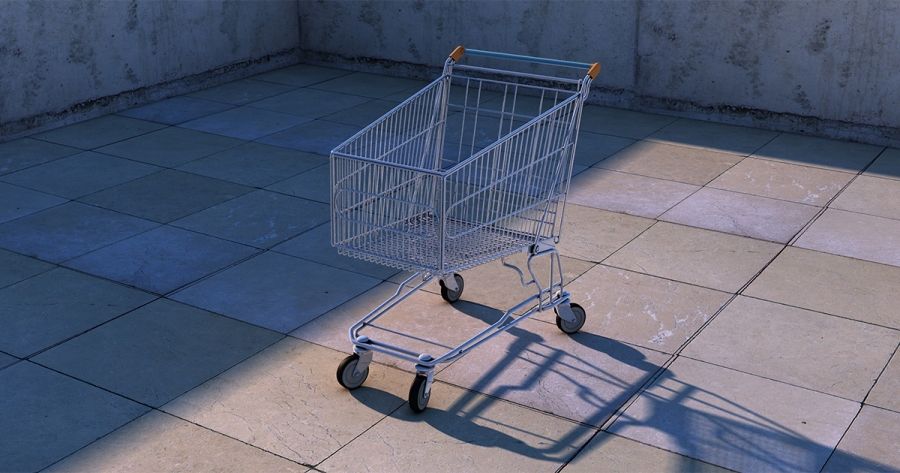When I walk by the security-office door on my break and it’s open, I snatch a look. The supermarket guards keep the door open when it’s hot, over forty. Right now, mid-February, that’s most of the time.
‘You must get boiling with that headscarf on,’ my friend Skye says, almost whispering. We’ve been friends for weeks before she says this. I’ve seen the other girls wear strappy tops under their brown supermarket overalls.
It’s only us in the staff tearoom, me and Skye in the plastic chairs, Mo standing against the wall in his silver trainers, drinking Nescafé. Mo glances up, he doesn’t miss a thing.
I look at him, I look at Skye.
‘It’s not as bad as you think,’ I say. ‘The air conditioning helps. I never get cold.’
‘That’s what my mother says,’ Mo murmurs.
Columns of black-and-white CCTV screens cover the walls. There are no windows, the same as in the staff tearoom.
What can the security guards see on their screens? What can’t they see? This is what I want to find out. This is why I peek. Usually I don’t get more than a few seconds. The screens all look the same, the aisles all look the same. The security guards sit with their feet up on the desks, drinking cold Pepsi.
Plus right now they have giant red cardboard Valentine’s Day hearts hanging in the aisles, blocking the view of the cameras.
Defeats their purpose, you might say.
Gives ideas, my mother might say.
More ways than one, I think to myself.
Already I know the place I’m looking for won’t be the frozen-goods aisle, its corridor of smooth fridge doors. Nowhere to hide there, and freezing cold, too.
It also won’t be the open-plan sweets area with the help-yourself display units, the imported Valentine’s Day chocolates in stacks of red and pink. Everything in the sweets area is waist high. The supermarket expects sweets and chocolates to go, also grapes, cherries, cherry tomatoes – anything that’s finger food. Mo says so. Some days we set out sample trays of cherry tomatoes. They all go in twenty.
Everyone does it, Mo says. He’s worked here for longer than us girls have. He’s been in this country for longer, too. Stuff just walks into people’s mouths, he says – Smarties, plain old marshmallows, Jelly Babies, – everyone thinks they can sample one or two without anyone noticing. Maybe no one does. The security guards wait for bigger prey.
My heart jumps. It jumps the minute he says, You won’t believe how much just walks. Mo, I see, is also taking looks at the screens. Mo is also wondering about places out of sight.
But then, who wouldn’t want to find a hidden place somewhere to break up their day? Who wouldn’t take a moment to skate, slide, twirl a trolley? Skye once turned a somersault. It was quiet, close to closing. She did it in a second, flick flack, just like that.
Mo knows more, though. He has the lowdown. The shoppers picking their noses in empty aisles, plucking at their underwear, squeezing the fresh bread till it’s nearly flat – Mo knows their secrets, he has it all cased out. When he tells me about something he has spotted, I blush. I let my headscarf fall lower over my cheeks to hide my blushes. But I come back to him.
‘By the bleach, I think,’ I tell Mo. ‘That’s the best place.’
See if he agrees. From what I can tell, people don’t pause and browse in the cleaning-products aisle. Any security guard with knowhow won’t waste time watching those screens. Shoppers go straight to the item they need on the shelf. They don’t linger, they don’t steal bleach. Unless.
‘Uh-huh, Farhana, so now we know. Bleach section. We know where to find you when next you have something to hide.’
And he winks at me. My heart jolts.
The first time we spoke my heart did the same jolt, a skip out of time. It was in the staffroom. The fan was on, another hot day. He caught my eye and without pausing said salaam alaikum in proper Australian from behind his Pepsi can.
‘Salaam alaikum,’ I said, straight away dropping my eyes, but not before my heart turned around and I returned his look, may God forgive me. And then added, ‘Hello.’
We’ve kept it to Hello ever since, but my heart still jolts.
It’s all crazy. It should be stopped.
❧
Dear Veronica, I’d write, if I had the courage. Dear Veronica or Pamela or Monica – these names that no women I meet ever have.
I love him. He is … he is … When I hear his voice in the next aisle my breathing goes insane.
Dear Monica, Dear Pamela, I’m on the verge of writing. Can’t talk to my mum, can’t talk to my aunt, though she’s younger with highlights under her headscarf. Can’t talk to anyone at school. They’d want to go huh, is that for real? Hide their real feelings with a cough. Like Skye. ‘You serious?’ she says. ‘You feel bad just looking a boy in the eye?’
So all I can think of is an agony auntie like you, Dear Veronica, from Mum’s Woman magazine. There are rows and rows of magazines like yours here in the shop by the checkouts. I restack them every day.
The best way of getting to know this country, Mum says. What the men think is on TV. What the women think is in these magazines.
But what she reads in the magazines worries her, the agony columns especially. Reading the columns, she heaves low, grieving sighs and calls my aunt. They talk about the nice Afghan boy up in Brisbane, our cousin five or twenty-five times removed. They talk about nice Afghan boys in other cities around the world. This country is too full of temptation and false allure, my mother tells my aunt, not in English. We need to move fast to get her settled.
Dear Veronica, Dear Pamela, I’d like to write if I could, if I had courage, if I didn’t think Mum would read the letter and find me out in a flash.
I work with him and can’t stop thinking about him, I want to write. Whenever we’re stacking shelves I want to reach across, I want to hold his hand. I think it will be a warm, dry hand. I want to be his girlfriend but I have no idea. Can I say girlfriend? I don’t know what girlfriend means. I wouldn’t know how to begin.
Would they even understand? Everything dear Monica, Pamela, Veronica say is about promise and possibility, grabbing promise, widening possibility, having it all. Isn’t this the land of big flat horizons and big possibilities? Isn’t this the twenty-first century? Isn’t this the place and the time where you take your opportunities in both hands?
But that’s why I’m writing, I’d say. But wouldn’t say, can’t say. Take my opportunities, what does that mean? What is that my? What is that take?
See, the place where I’m from, that place – you can hardly say the word, because people look at you, the name of the landlocked country with deep caves and valleys up in the clouds where outsiders get killed and insiders get killed, the place that was once the hub of the world, everything trading in every direction east to west, south to north from the time of Alexander, walnuts, silks, carpets, upholstered chairs, mulberry saplings, silverware, glass goblets, masked goshawks, falcons … There, in that place, what your family wants goes. Families depend on a girl not choosing for herself.
Opposite of home, this new country, Mum often says. You walk to any edge of this country and you fall into the sea. You don’t walk on.
Why walk to the edge at all? says my aunt, when millions of people are walking to the edges of their countries trying to get to this one. Drowning in small boats.
Only reason we got here, Mum says, your father’s a damn good doctor, and we’re a good family, and you and your sister are good girls, good as gold. That bit she says in English. Good as gold.
Dear Veronica, I want to write, Dear Pamela, I think I know Mo likes me because when we’re stacking together he tells me about himself. He tells me about growing up in Victor Harbor, the only Lebanese family in town, the only Muslim family, his father the caretaker of the caravan park. He tells me they had a butcher shop once, but the town wasn’t big enough for a halaal butchery. He tells me his mother stays at home. She stays at home all the time. Mo’s father walked him to school.
Dear Monica, I want to write, I think I know Mo likes me because he tells me private things about himself. He tells me about the Airfix planes he used to build as a kid. American Airforce planes mainly – Mustangs, Harrier jets. To this day his mother has them dangling from the ceiling in their living room. He’s embarrassed saying this, but he shouldn’t be. I like that he built Airfix planes. I like to know everything about him.
He tells me his first job was in a tablet-repairs shop that also sold XL and XXL clothes on the side. The shop for the guys who get fat playing games all day on their tablets, Mo said, and made me laugh. Who am I to talk, though? he went on. Spend about four hours every day on the Xbox.
When instead we could be walking up and down the Parade together chatting, I silently say to him. When we could be sitting together in the shade of the bandstand on Memorial Square drinking smoothies.
Dear Veronica, I want to write, I think I know Mo likes me because he tells me about stuff he reads on the internet. Did you know trees are sociable? he tells me. I mean, within their different species? Their roots reach out to each other. That’s why the giant sequoias never grow tall away from the big forests of America. They grow tallest together, reaching out.
I think, reaching out, what is he telling me? And I say, it’s different for us then. We leave our countries to grow tall elsewhere, over the sea.
In reply he just looks at me. And I remember Victor Harbor. I remember the halaal butchery and the caravan park. I remember he has lived here ages, unlike me.
Dear Pamela, I want to write, I think I know he likes me because when I’m working on an aisle refilling shelves, he makes sure to place the boxes of new products on the top shelf by jutting them out, so that even a short person like me can reach them. So that I can stretch up, wiggle them out and then pull them down.
Dear Monica, I also want to write, I think I know for sure he likes me because today, the day before Valentine’s Day, he asked me to help him stack in the cleaning-products area. He remembered what I’d told him and he made a date, almost.
He leaned right over and said smiling, ‘At least with the headscarf the camera won’t see you blush.’
And I said, don’t know where the words came from, I said, ‘It won’t show anyway, the screens are black and white.’
So today, Veronica, we have a game plan of sorts. Am I saying we? I don’t know what we means, I do know what we means. Well, we, he and I, for the first time we have a plan.
Of course we’ve walked our way towards each other down all kinds of aisles, crossing paths between the washing-powder towers, the jams and chutneys and just add milk pale-pink instant puddings. But then I tell him about safety in bleach and he asks me for help.
We move down the cleaning-products aisle from opposite directions just like normal, except today all this is planned. We are sidestepping like dancers, even our stacking hands are moving in sync. My heart goes mad.
I see his silver trainers out of the corner of my eye. I see the red cardboard love hearts hanging from the ceiling, even here in cleaning products. I see the red, foil-wrapped, chocolate mini-heart he is holding in his hand. At this time of year there are mini-hearts piled in plastic bowls at the checkout for $1 each. I refill the bowls every few hours so they always look full.
He puts the chocolate in my hand. It is soft from lying in his palm. We reach the opposite ends of the aisle and change direction. We cross paths a second time. He tucks a second chocolate into my hand. He moves off, thinks better of it, does a funny moonwalk turn, and pulls a third chocolate out of his pocket. I laugh. This chocolate is even warmer to touch. It is going squishy inside its foil. He offers to peel it for me. I shake my head. I can’t bear to close my hand over the softening chocolate, the three squishy chocolate hearts.
What do the cameras see? What do the screens in the security office show? A boy shelf-packer and a girl shelf-packer working together, just that, though, wait a minute, their crossing point is always closer to his end of the aisle, may God forgive her. That means she sidles faster, she wants to go quicker. She is ahead of him, ahead of herself.
On the day before Valentine’s Day, I collect three chocolates from Mo’s hand in cleaning products.
The next day, Valentine’s Day itself, we play our sidestepping game again and I collect four.
I put my hearts in a paper bag and hang it on my hook in the staffroom. Then I worry about the chocolate melting and I go to store the bag in the fridge where we keep the milk for our coffee.
And then, Dear Veronica, I see Skye has also received a chocolate heart. She has left her heart on a shelf in the fridge marked with her name on a Post-it. Skye’s chocolate heart is not the mini kind. It is one of the $7.95 hearts that we sell in sweets, the type that guys in suits rushed in to buy today at lunchtime along with bunches of cellophane-wrapped red and pink carnations, hoping to make up later for what they forgot to give this morning. My job today is to spritz the flowers on the hour with cool water to keep them sprightly in the heat.
Dear Pamela, I want to write, I don’t want to write, I think I don’t know anything, I think I do know something. I think Mo has given Skye this $7.95 chocolate heart.
I remember how in these last few days of hot weather Mo has gone outside during our breaks to stand in the shade by the back exit and chat to the shelf-packers who smoke. Skye is a smoker.
‘It’s the sociability,’ he says passing me on his way out. ‘Humans like sociability like trees do,’ I think I hear him say.
The smokers stand in the shade of the Queensland box by the exit and kick the fallen tree fruit and exhale their smoke up into the branches. I see them through the crack in the fire doors. Skye stands against the box trunk with her overall poppers open to show her strappy top underneath and squints into the smoke rising from her cigarette.
Skye knows what girlfriend means. Of course she does. She knows what girlfriends do. They squint through their lashes and blow smoke into boys’ faces. What Lebanese boy from Victor Harbor wouldn’t want to stand with a girl like Skye in the cool shade and give her chocolate hearts on Valentine’s Day and see her screw up her eyes at him?
At the end of the day Skye has six chocolate hearts in the fridge, two big, four small.
Dear Monica, I want to write, all I know is, Mo couldn’t have given her all of those chocolates.
❧
It is over forty-five degrees today, even hotter than it was on Valentine’s Day. First thing this morning we took down the red cardboard hearts hanging in the aisles. The boxes of chocolates are two for the price of one and probably melting and turning white underneath their foil. The door of the CCTV room is wide open. The security guards have got used to me standing in the doorway. They don’t look round when I pause to take a look.
Mo is visible to me all around the supermarket. His bright silver trainers show up white on the screens. Since Valentine’s Day I try not to go where he goes. I avoid his plans.
The fact is I’ve been punished. The eye of God sees everything and I went too fast. I was giddy. Sidling sideways down the aisles to meet with a boy I hardly know and receive warm chocolates from his warm hand, it meant too much.
Skye and Mo meantime pretend nothing is going on. He joins her and the other smokers under the box tree. They take plastic cups of Nescafé from the machine in the staffroom. I see him hand out cigarettes. He carries a box in his pocket even though he doesn’t smoke, or not that I can see. I see him offer to light her cigarette with one of the orange plastic lighters we sell at the checkout. I see her flick her hair and giggle into his face.
At the end of the break, he offers her gum and she takes it. Freshen her smoky breath. Back in the staffroom he offers me gum too, smiling as though nothing is wrong. I say no, really quick.
I find a new favourite place to stack, at the shelves of hair products. This spot is directly under the eye of one of the cameras. I know this from my CCTV peeking. I like how smoothly the tall bottles of shampoo and conditioner and hair serum stack. I like how they shine like candy – green, pink, raspberry, orange – and I like how they smell of almonds and honey. I go back often to neaten the rows. I like to think no customer could ever guess how many times the display has been touched, lined up, straightened. I want them to think they are the very first today to reach out their hand and select just this shiny shampoo.
And then he is suddenly stacking here beside me. Salaam alaikum, he says, same as that first time.
Dear Monica, I’d write if I was still thinking of writing, Dear Pamela, his hands are moving in rhythm with mine.
Dear Veronica, I won’t let myself think but still I think it, he has sought me out.
I slow my stacking hands and he goes slower, to my tempo. I look up at the CCTV to remind him it’s there, our supermarket eye. He looks up too, then back at me. That loose shrugging of his shoulders under his shirt. I start to blush.
Dear Veronica, I see our hands playing in harmony over the full and luscious fortifying serums, and the pure shine conditioners and gels, and though my headscarf shields my cheek I know he can see my blush without even looking, and I know that he knows what I am thinking.
This is what I am thinking, what I am trying not to think. I think that by leaning in his direction just a fraction I can let the weight of my hair under my headscarf brush against his arm. So he can feel the touch of what only the eye of God and my mother and the mirror at night can see.
Dear Pamela, I want to write, this boy at work, the one I liked, I don’t know what to do about him. He follows me around, he watches the cameras just like I do, he always knows where to find me. I no longer trust him. I mean, I don’t trust myself around him.
When I’m around him I lose my senses. Even when I see him on screen I lose my bearings. When I see him light Skye’s cigarette or straighten her collar after she’s refastened her poppers or, once, curl her hair back around her ear, and then when he comes over to stack shelves with me as though nothing was the matter, I can’t help myself. I think warm chocolate hearts. I think finger food, cherries, cherry tomatoes, orange plastic cigarette lighters.
I also think of hairgrips with pearly tips, the kind I use to fasten my headscarf. He offered me a new packet today when we finished stacking and straightening the shampoos.
It won’t help, Dear Monica, to advise me to get his number and invite him to a movie like you do with everyone else. It’s gone beyond that point.
I go to stand in the doorway of the CCTV room till the two security guys notice me. I don’t have to say anything, I only point. I point to Mo in his bright trainers moving across the screens. I point to his quick Airfixing fingers flying here and there, all over the place. See his fingers reaching for stuff, I say, just small stuff, true, chewing gum, cigarettes, lighters, matches, hand creams, hairgrips with pearly tips, coloured elastic bands, stuff that girls like. But doesn’t it just stack up and fill up his pockets?
‘We’ll observe things for a while and then take steps,’ the head security guard says. ‘The manager will be grateful. You’ve been very quick to see this.’
‘I always did stack quicker than him,’ I say, and close my fingers round the unopened packet of pearly hairgrips in my overalls pocket.
‘Supermarket Love’ was commended in the 2019 ABR Elizabeth Jolley Short Story Prize.


